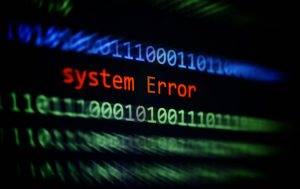
Engdao Wichitpunya
Closed organizations are marked by a kind of moral disorientation that makes the corruption of founding values possible and rationally justifiable. Sustained isolation and the loss of objective, internal feedback means the absence of any moral or ethical gyroscope within the organization. What's amazing is not that ethical breaches or outright corruption are rationalized inside the system but that the rationalizations are believed by members for such a long period of time. Ex-members are left to ponder,How could we have been there and not seen what was going on
Xenophobic delusions of persecution increase the risk of aggressive action by the organization. With the confluence of pent-up aggression and paranoia, lists of those who are perceived to threaten the survival of the organization can turn into hit lists. Closed systems are at risk to launch preemptive strikes, which they define in their paranoia as defensive actions.
Many closed systems, in their later stages, take on an essentially psychopathic character. In their elitist view of the world, they exist as sovereign entities for whom no external rules apply.Evil done in the name of good is a common legacy of closed systems.
People close to the high priest/priestess, particularly those in the inner circle, are close enough to note a wide range of what outsiders will later callobvious warning signs. To insiders, however, such variance in behavior is not viewed critically because the actions of the leader are viewed as unchallengeable. Such breaches are inconceivable in such a deified person.silence is sustained in order to protect both the high priest/priestess and the system.
When we have closed, paramilitary-like subcultures squared off against each other, the results are often disastrous. Poor reality-testing, pent-up aggression, pressure for crisis resolution, ideological arrogance, unwillingness to call on outside resources, incapacity to listen, propensity to misread and misinterpret behavioral cues, delusional thinkingAll of these, occurring on both sides, contribute to these disasters.
The centralization of power in the leadership role of a closed system can transform a minor quirk of character into a fatal flaw. There is buried in the role of the high priest/priestess a seed of recklessness, a seeking for risks and sensations that often takes those who fill the role to the precipice, if not over it. Unfortunately, the organization and its members are compelled to share the journey.